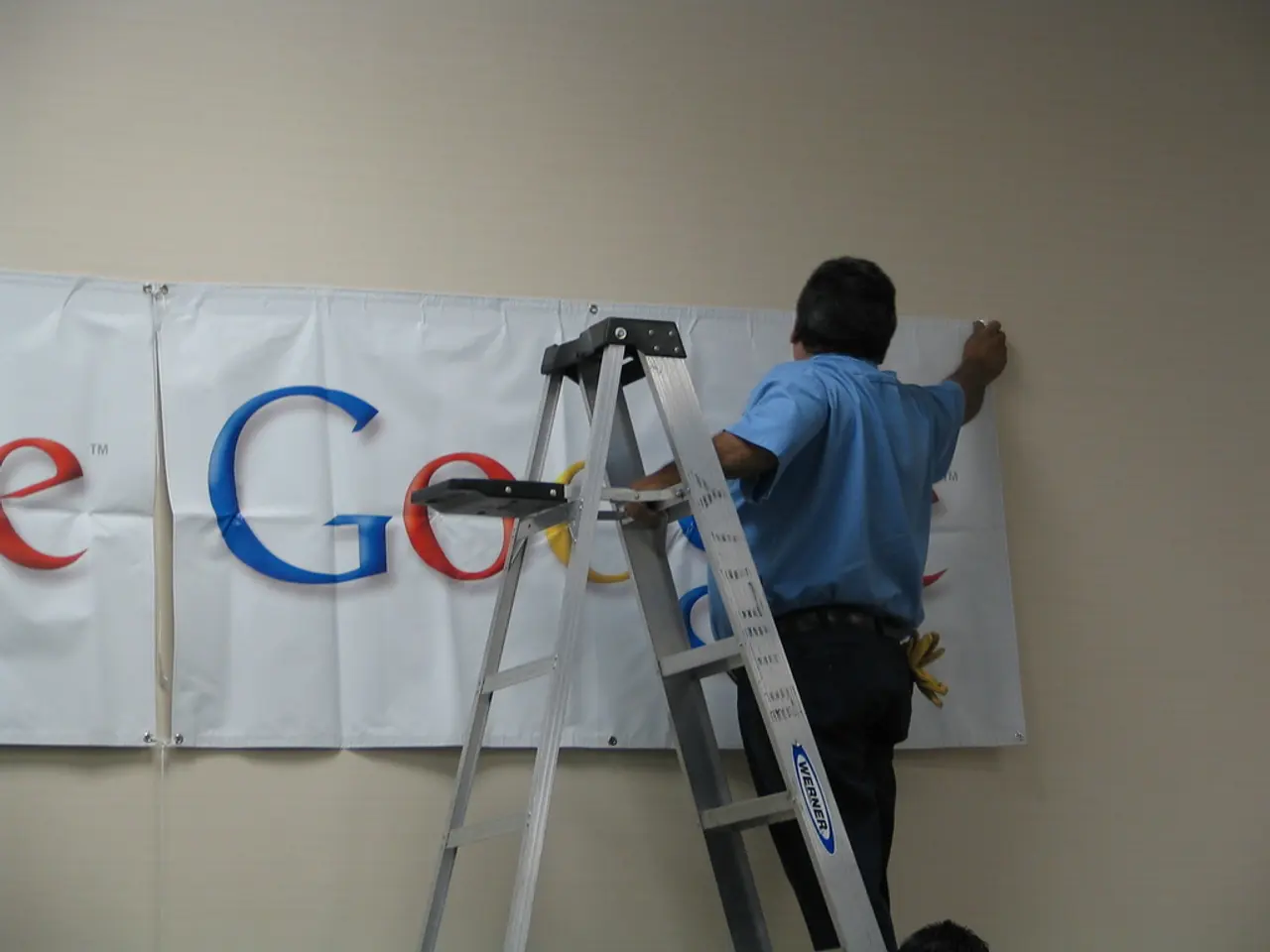Revised Search Results Explanation: The Knowledge Display Panel by Google
In the vast expanse of information that the internet offers, Google Knowledge Panels stand out as a beacon of concise and quick overviews. These informational boxes appear on the right side of a search engine results page (SERP), near the top of the page, providing a snapshot of a particular topic.
Knowledge Panels are a form of rich snippets, a specific type of information that stands out from the sea of data that shows up in response to a search query. They can help dominate search engine results, making them an essential part of any online presence.
The appearance of a Google Knowledge Panel for a given search query is primarily determined by several core elements. First and foremost, the query must refer to a notable entity such as a person, organization, place, or concept with sufficient prominence and verifiable information.
Google sources content for these panels from open web sources (such as Wikipedia) and direct feedback from entities and/or data partners. The entity presence and authority are crucial, supported by structured data from trusted sources like Wikipedia, Wikidata, official websites, and Google’s Knowledge Graph databases.
Websites and data repositories that provide rich, well-structured information about an entity (e.g., using schema.org) increase the likelihood of a knowledge panel being generated. This structured data helps Google confidently extract facts about the entity.
The content demonstrating high expertise and trustworthiness on a subject also helps Google validate the authority of an entity, supporting panel appearance. Detailed, updated, and authoritative content related to the entity enhances Google’s confidence, including vetted data points, historical facts, and multimedia that Google can leverage in the knowledge panel.
Google's AI-powered features and panels give weight to authoritative tone, vetted data points, and clear entity attributes to improve trust and clarity in the panel’s presentation. The user intent and query specificity are also significant factors, with knowledge panels commonly appearing for queries that clearly correspond to recognized entities rather than ambiguous or generic searches.
For instance, when searching for a business like Nike, a knowledge panel might display a business overview, customer service contact information, when the company was founded, and by whom, along with the current CEO, headquarters location, and subsidiaries. When searching for an animal like a cat, a knowledge panel might provide an overview of the animal, including their scientific names, how long they live, and various breeds, and might even include cute photos. Similarly, when searching for a person like Mahatma Gandhi, a knowledge panel might display who they were (a political ethicist) and what made them famous (helped gain India's independence from Britain).
It's important to note that not every search query will result in a knowledge panel. The exact proprietary algorithm details are not fully public, but the factors mentioned above play a significant role in whether and how a knowledge panel is shown.
Businesses and individuals can direct information on their own knowledge panels by becoming verified by Google. Strategies such as building a content strategy that focuses on higher rankings, an enhanced online presence, and better results, as offered by services like ClearVoice, can also aid in this process. Additionally, Sitelinks and Knowledge cards are other important elements of building a presence on Google.
In summary, the specific factors determining Google Knowledge Panel appearance are tied to the presence of a clear, authoritative, and richly documented entity with structured data and verified information, matched to a specific user query indicating that entity as the search intent. This involves entity recognition, data trustworthiness, and query clarity rather than solely classical SEO ranking factors.
Technology plays a crucial role in the creation of Google Knowledge Panels, as these panels are AI-powered and rely on structured data from various sources, such as Wikipedia, Wikidata, official websites, and Google’s Knowledge Graph databases.
Data-and-cloud-computing solutions can help businesses and individuals build a content strategy that focuses on higher rankings, an enhanced online presence, and better results, potentially increasing the likelihood of having a knowledge panel created for their entity.




